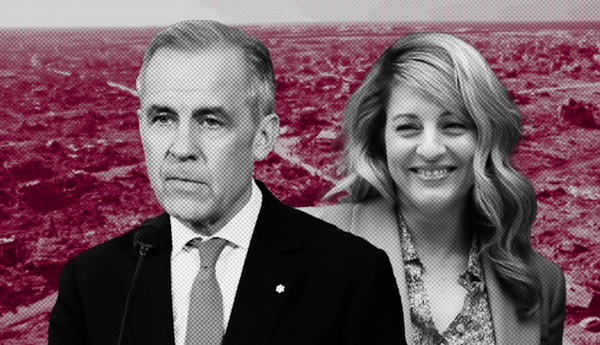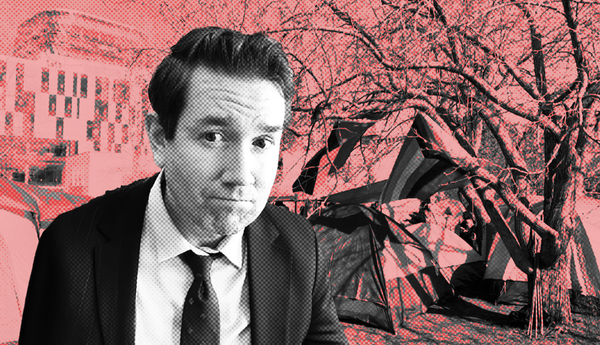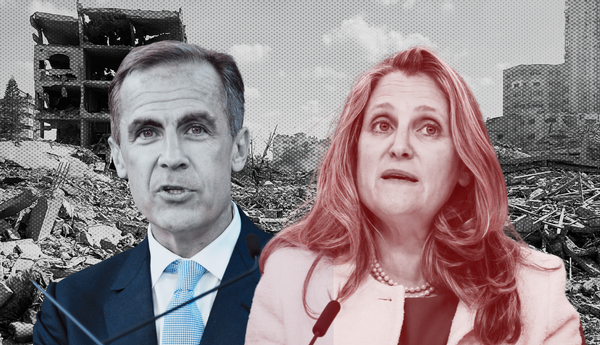After approximately three weeks of bargaining between Canada’s public broadcaster and the union representing some 4,000 of its employees, CBC management said it planned to go ahead with job cuts earlier this month.
That’s despite initial assurances from management that there would not be job cuts this year, according to the union.
CBC and Radio Canada’s executives decided they would plug a $125 million gap in its budget with job and programming cuts. Approximately 500 unionized workers, 100 non-unionized positions and 200 job vacancies are on the chopping block.
Thanks to a combination of stagnant CBC funding and the decline of Canadian media due to falling ad revenue and audience traffic, budget shortfalls at the public broadcaster are not new.
But this time around, the Canadian Media Guild (CMG) said, job cuts weren’t originally on the table.
“Senior management initially told the union that it would not address a budgetary shortfall on the backs of the people who make our programming everyday – and yet we were told that will now happen,” reads a statement from the union’s CBC executive committee published on December 5.
To make matters worse, CBC/Radio Canada management initially said that cutting executive pay was off the table.
In a now-infamous interview with CBC’s own Adrienne Arsenault about the job cuts, CBC President and CEO Catherine Tait was asked whether executive bonuses would be paid out. Tait said it was too early to say.
But in a subsequent statement on December 8 signed by Tait as well as seven other CBC executives, the team said “all possible measures,” including executive compensation, are up for consideration.
Regardless, labour experts say the CBC’s workforce is in for a rough ride, and that averting the layoffs at the bargaining table won’t be easy.
Job Cuts At CBC ‘A Fact Of Life’
The looming cuts aren’t the first time CBC/Radio Canada has faced massive layoffs.
Paul Audley, the former executive director of the Federal Task Force on Broadcasting Policy, wrote in a 2021 article for the Toronto Star that the CBC’s funding in 2019-2020 was $696 million less than what it had received in the 1984-1985 fiscal year.
Lise Lareau, former president of the Canadian Media Guild and a 35-year veteran of the CBC, told The Maple that because the public broadcaster receives its allocation from Parliament, it cannot conduct long-term fiscal planning in the same way that a private corporation might.
Some political parties in Parliament, such as the NDP, vocally support CBC/Radio Canada. Others, such as the Conservatives, want to defund the CBC’s English language service.
These pressures, combined with the persistent decline in TV and radio ad values over the last few decades, have put CBC/Radio Canada in a tough spot.
Because of that, Lareau said, CBC management and the CMG have a long history of bargaining around budget cuts — and, by extension, job cuts. When she was president of the union back in the 1990s, she faced a proposal to axe 1,000 jobs at the CBC in the midst of collective bargaining, not unlike today’s situation.
“It’s been a fact of life there forever,” she said.
What remains unclear is why CBC management placed hundreds of jobs on the chopping block after weeks of collective bargaining.
In a statement to The Maple, the president of CMG’s branch at the CBC, Naomi Robinson, said it was important that everyone understood the extent of the CBC’s financial pressures during bargaining. “It makes for more complicated discussions at the bargaining table,” she wrote, “but it will not deter us from seeking a deal that is fair for our members.”
Leon Mar, director of media relations at CBC/Radio Canada, told The Maple that the company briefs unions prior to major employee announcements, but the specific details on when and how this happened “are prior and confidential.”
Mar also said CBC/Radio Canada had been keeping employees apprised of the company’s financial statements for some time, and insisted that it hadn’t misled employees.
He added that Tait had told Radio-Canada employees back in October that the corporation needed to address “over $100 million in budget pressures next year.”
Good Faith Negotiations?
The question of when CBC management knew they’d need to cut jobs is an important one. In contract negotiations, both unions and employers are supposed to deal in “good faith,” meaning they don’t hide critical information to gain an edge during bargaining.
David Doorey, an associate professor at York University who studies workplace law, told The Maple in an email that this means if an employer knows layoffs are coming, they must tell the union during the negotiations.
And while it isn’t clear exactly what happened inside the bargaining room, the timing of the layoffs is striking.
One possibility, floated by Lareau, is that bargaining happened to coincide with the CBC’s usual layoff season – either in the fall, or early spring. “In that respect,” she said, “it’s not completely shocking.”
Meanwhile, Charles Smith, an associate professor at the University of Saskatchewan and co-editor of an academic journal on labour studies, said the decision may push the boundaries of legality. Bargaining is supposed to represent a freeze in working conditions as both an employer and its workers hash out a new contract.
“It’s weird that the management [...] announced very publicly that they’re laying off this incredibly large number of people right in the middle of negotiations with their union,” Smith told The Maple. “That’s going to have dramatic implications at the bargaining table.”
The move isn’t illegal per se, according to Doorey, but “if CBC was dishonest in some way, then the guild might have a bad faith bargaining complaint,” he told The Maple.
“However, there is nothing on its face that is unlawful about an employer announcing layoffs during collective bargaining.”
Resisting The Layoffs
CMG has promised to fight to keep as many of its members in work as possible.
Unfortunately for CBC workers, the most potent form of fighting against management, a strike, can be moot during budget cuts.
“If a company is laying off, it means that they have made the decision that they don’t need those workers,” said Stephanie Ross, an associate professor of labour studies at McMaster University. “And so, that leverage that comes with withdrawing your labour evaporates.”
Countering the layoffs themselves isn’t all that easy from a legal point of view. “Layoffs are the prerogative of management,” Smith explained, “so they have the ability to do that.”
One possibility for CMG, given the current situation, is to raise an unfair labour practices complaint over the timing of the layoff announcement. However, even that may not have sufficient grounds.
Fighting to get executive pay cut might also be an uphill battle.
As an example, Ross pointed to one of the more successful strikes in recent history: The United Auto Workers’ (UAW) action against General Motors last summer, which led to a historic pay boost for auto workers.
While the UAW used CEO Mary Barra’s $29 million salary for 2022 as a reason for the company to pay union members more, the new contract doesn’t constrain executive pay.
“They’re not going to take money from executive compensation to fund the new collective agreement,” Ross said of the UAW contract. Instead, she added, the company just bumped worker pay and made up the difference by raising car prices.
Ultimately, Smith said, layoffs are a tool employers can legally use to cut costs, albeit so long as the bargaining process is respected.
Countering them isn’t easy. One way to do so, Ross said, might be for CBC’s union to try to leverage public support for better funding for the public broadcaster. At the end of the day, Ross said, CBC/Radio Canada is a public service, and asking whether funding should go to journalists – rather than executives – could get the public on side.
Another way is to fight for better severance language, Ross said, and help push back against employers making such extreme job cuts in the first place.
Layoffs Everywhere
While the Canadian government recently reached an approximately $100 million deal with Google to compensate news publishers through the Online News Act, Canadian media remains in a state of crisis.
“This is not just a Canadian story,” Ross said. “There are layoffs and labour strife going on in journalism across North America.”
By and large, laid-off CBC workers will find it difficult to jump into another job in their chosen field. In January, The Canadian Press reported that Postmedia, the largest newspaper chain in the country, would be laying off 11 per cent of its editorial staff.
NordStar Capital, the owner of the Toronto Star and a chain of other publications, cut 605 jobs from Metroland Media Group in September. Two months later, TVA Group got rid of 547 workers, nearly one-third of its workforce.
The result of the layoffs at CBC could be disastrous, said Lareau, especially for smaller or mid-sized cities like Thunder Bay, Saskatoon or Edmonton. By cutting so many staff at once, bureaus with just a handful of news-gathering workers will be even more hard-pressed to cover important stories.
Ultimately, the CBC fills a gap that private broadcasters don’t, she said.
Brennan Doherty is a Toronto-based writer. His work appears in the Toronto Star, Globe and Mail, The Local, TVO Today, and elsewhere.






